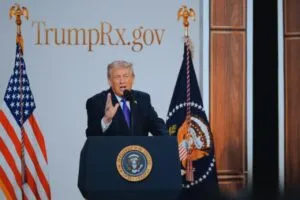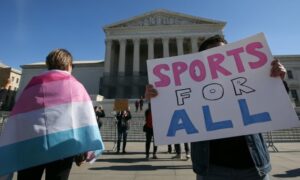On June 20, 2025, the United States Supreme Court unanimously upheld a federal law that reopens American courts to victims of overseas terrorist attacks who wish to sue the Palestinian Authority (PA) and Palestine Liberation Organization (PLO).
The case, Fuld v. Palestine Liberation Organization, is one of those rare rulings where all nine justices agreed: Congress acted within its constitutional authority when it created this pathway for American victims.
For families who have waited years, the decision revives lawsuits that had stalled and restores a measure of accountability they feared was permanently closed.
Today, we will walk you through what exactly the Court decided, why it matters, and what comes next. We will explain a dense jurisdictional ruling in clear terms, because while the legal mechanics are complex, the stakes are deeply human.
Table of Contents
ToggleWhat Happened in the Supreme Court

The Court was asked to review whether the Promoting Security and Justice for Victims of Terrorism Act of 2019 (PSJVTA) violates the Fifth Amendment’s Due Process Clause.
In short, the justices said no. The law survives, and U.S. courts may once again hear terrorism cases against the PA and PLO if certain conditions are met.
- Vote: 9–0
- Opinion by: Chief Justice John Roberts
- Concurring opinion: Justice Clarence Thomas, joined in part by Justice Neil Gorsuch
By affirming the statute’s constitutionality, the Court cleared the way for lawsuits that had been blocked on jurisdictional grounds.
Among them are the Sokolow/Waldman families’ claims, once tied to a $655.5 million jury verdict later thrown out, and the Fuld family’s suit after the 2018 killing of Ari Fuld in the West Bank.
The Road to the Court
To see how we got here, it helps to map the path:
| Year | Event |
| 2002–2004 | Terrorist attacks in Jerusalem injure and kill U.S. citizens; families later sue the PA/PLO in New York. |
| 2015 | Jury awards $218.5 million, automatically tripled under the Anti-Terrorism Act (ATA) to $655.5 million. |
| 2016 | Second Circuit vacates verdict, citing lack of personal jurisdiction. |
| 2018 | Congress enacts the Anti-Terrorism Clarification Act (ATCA), attempting to fix jurisdiction. |
| 2019 | Congress passes the PSJVTA, tailored to PA/PLO conduct. |
| 2020 | Supreme Court remands earlier cases to reconsider under new law. |
| 2022–2023 | Lower courts strike down PSJVTA as unconstitutional. |
| April 2025 | Supreme Court hears arguments in Fuld. |
| June 20, 2025 | Court unanimously upholds PSJVTA. |
What the 2019 Law Actually Says

The PSJVTA amends federal law to deem the PA and PLO as having consented to U.S. jurisdiction if they engage in either of two kinds of conduct:
Payments Prong
If they make payments to individuals imprisoned for terrorist attacks that harmed Americans, or to families of attackers killed in such acts. Congress linked this to the earlier Taylor Force Act, which condemned financial incentives for violence.
Firms like Oberheiden have written extensively about how such laws interact with broader terrorism-related litigation.
Activities Prong
If they establish, maintain, or operate offices or facilities in the U.S., or conduct any activity on U.S. soil. The law specifically exempts the PLO’s official U.N. mission.
How the Court Reached Its Decision
1. Fifth Amendment vs. Fourteenth Amendment
Chief Justice Roberts emphasized a key distinction: state courts are governed by the Fourteenth Amendment’s “minimum contacts” test, but federal statutes must be evaluated under the Fifth Amendment.
Unlike states, the federal government does not face the same interstate limitations. That gave Congress broader room to authorize jurisdiction tied to federal interests.
2. Narrow Triggers with U.S. Connections
The Court highlighted that Congress chose narrow, U.S.-related conduct: payments connected to Americans harmed by terrorism or activities inside the U.S.
The justices treated this as a careful legislative judgment, deserving deference, especially in foreign affairs matters.
3. Reasonableness
Even if due process requires jurisdiction to be reasonable, the Court found the PSJVTA easily passes.
The U.S. has a compelling interest in protecting its citizens, the plaintiffs deserve access to an American forum, and the PA/PLO are sophisticated entities capable of defending themselves in U.S. courts.
4. Consent-by-Statute Left Unresolved
The Court did not answer whether Congress can always deem consent by law. Since the statute already satisfied due process on other grounds, that question remains open.
5. The Concurrence
Justice Thomas argued for an even broader view: that the Fifth Amendment imposes no territorial limits on Congress’s ability to set federal jurisdiction.
Justice Gorsuch agreed with part of that reasoning. The majority stopped short of endorsing that position.
What Happens to the Pending Cases
The ruling sends two major sets of claims back to the Southern District of New York:
Sokolow/Waldman Case
The 2015 $655.5 million verdict had been wiped away because of jurisdictional defects. Now, with PSJVTA validated, the families can reassert their claims, though they must still prove liability and damages.
Fuld Case
Ari Fuld’s family, whose 2020 lawsuit was dismissed in 2022, gets another chance. The case returns to trial court to examine whether the PSJVTA triggers apply.
For both cases, the decision doesn’t guarantee victory. It simply ensures the courthouse doors are open again.
Key Legal Ideas the Court Reinforced

When the Supreme Court issues a unanimous ruling, it usually signals that the justices agree on some foundational principles.
In Fuld v. PLO, the decision wasn’t just about one statute; it also underscored a handful of broader legal ideas that will guide how similar cases are handled in the future. Here are the key takeaways the Court reinforced.
1. Federal vs. State Jurisdiction
Congress can craft jurisdiction rules for federal courts without being bound by state-level minimum-contacts doctrine.
2. Foreign Affairs Deference
When statutes address sensitive foreign-policy questions, the Court defers to Congress and the President’s judgment, so long as the rules are narrow and U.S.-focused.
3. Reasonableness and Fairness
A federal forum for Americans harmed by terrorism is inherently compelling, and the burden on the PA/PLO is not excessive.
Practical Implications
- Litigation resumes: Plaintiffs must still prove liability under the ATA, but they now have the chance to do so in U.S. courts.
- Factual disputes ahead: Trial courts must assess whether the PA or PLO actually triggered jurisdiction under the payments or activities prongs.
- Open constitutional questions: The Court left unanswered whether Congress can always legislate “consent” to jurisdiction.
- Influence on other statutes: The decision may shape how courts interpret jurisdiction under laws like the Foreign Sovereign Immunities Act.
Why Congress Crafted the Law
The PSJVTA is not a standalone measure. It builds on a long record of congressional concern over the PA and PLO’s actions.
Past statutes like the Anti-Terrorism Act of 1987, the Palestinian Anti-Terrorism Act of 2006, and the Taylor Force Act all limited funding or activity tied to violent conduct.
By 2019, Congress wanted to guarantee that U.S. victims could pursue claims in federal court, even when prior attempts had failed.
The law also instructed the State Department to facilitate a settlement process, reflecting a dual-track approach: litigation in the courts and diplomacy through executive channels.
What the Decision Does Not Do
It’s important to note the limits:
- It does not automatically impose liability on the PA or PLO. Plaintiffs still must win their cases on the merits.
- It does not bless every future assertion of federal jurisdiction. The Court stressed the narrow scope of the PSJVTA.
- It does not resolve whether statutory consent alone is valid for jurisdiction purposes.
What to Watch Next
- District court proceedings in New York: Judges will examine factual triggers and advance the cases toward merits and damages.
- Settlement dynamics: With jurisdiction restored, there may be more incentive to negotiate resolutions.
- Ripple effects: Scholars expect Fuld to influence debates over statutes that touch international defendants, from foreign-state enterprises to terrorism-related cases.
Closing Thoughts
The Supreme Court’s June 2025 ruling is not just about technical jurisdictional doctrine. For families who lost loved ones in attacks abroad, it is a restoration of their chance to seek justice in American courts.
For Congress and the President, it is confirmation that carefully tailored laws addressing terrorism and foreign affairs can withstand constitutional challenge. And for lawyers and judges, it is a reminder that federal due process analysis under the Fifth Amendment has its own contours—different from the state-focused model most are used to.
Whether the plaintiffs ultimately win or lose, their right to try has been preserved. That’s what the Court affirmed, unanimously, and it is why this decision matters far beyond the walls of the courthouse.
References
- supremecourt.gov – Fuld v. Palestine Liberation Organization
- supremecourt.gov – H.R.1164 – Taylor Force Act
- congress.gov – PALESTINIAN ANTI-TERRORISM ACT OF 2006
Related Posts:
- What Is the Most Dangerous Country in the World in 2025
- Safest Countries in the World in 2025 - GPI…
- 10 Iconic Moments in America’s Fight for Civil Liberties
- Civil Liberties in a Constitutional System
- 26 Most Dangerous Cities in US - Updated Statistics for 2025
- America's Murder Capitals: A 2025 Ranking of the…








